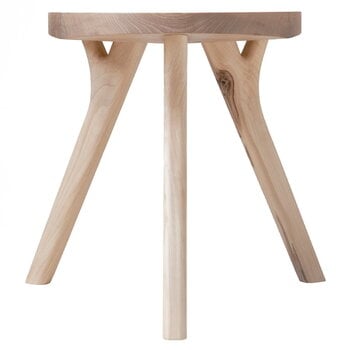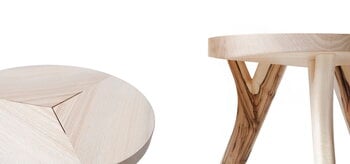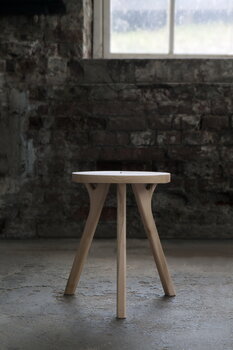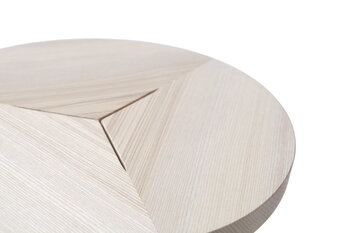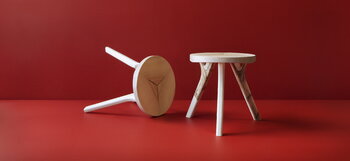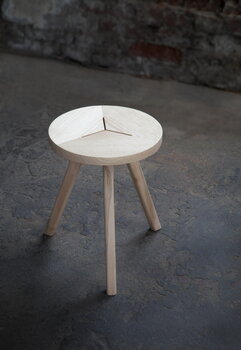Nikari's August stool is designed by Aamu Song & Johan Olin. The stool, made of ash, resembles the forms of tree branches growing in the forests in Fiskars, Finland. The beautiful stool works well as an extra chair or small table, for instance, next to an armchair or in the bedroom.
August was created as part of a project called 12 Designs for Nature: in 2012, twelve designers and design studios were asked to respond to Nikari's design philosophy in the form of a product. The products born in the project were named after different months.
Nikari products are made in Finland using only certified wood.

